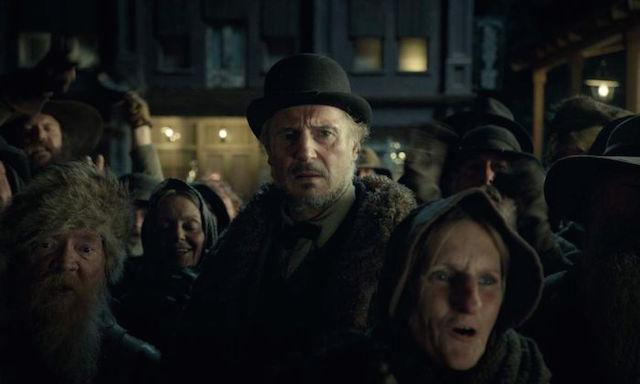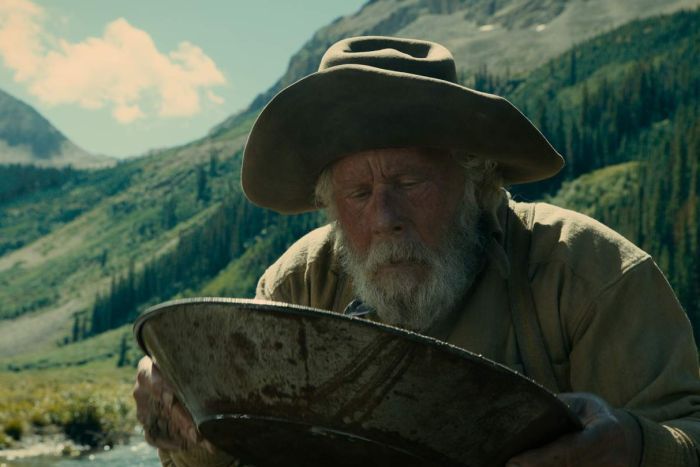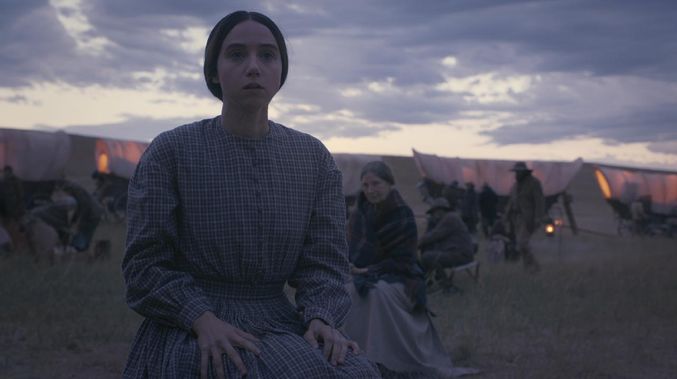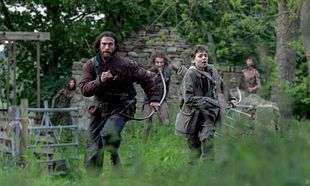'The Ballad of Buster Scruggs' - which is just one of six short films - opens with Tim Blake Nelson, the titular character, happily singing a song on horseback as he travels through the open plains and canyons of the Old West. The story feels like it should have Yosemite Sam turn up at any moment, as the absurdity and cartoonish violence is lain on thick and heavy from the get-go. It seems like an odd choice to start off with, but it makes sense in the grander context as 'The Ballad of Buster Scruggs' is as much about the futility of life and death as it about the Old West.
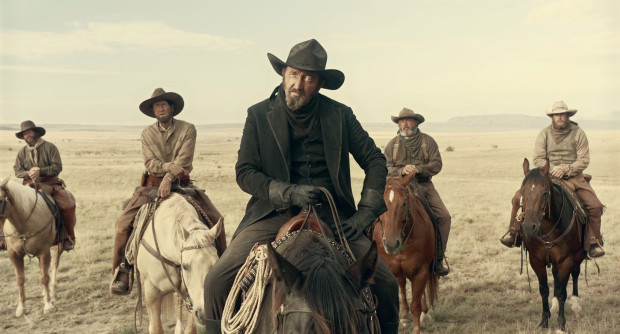
The next chapter, 'Near Algodenes', sees James Franco play a luckless bank robber in a homage to Sergio Leone. Neat little references to spaghetti Westerns - the robbery takes place in Tucumcari, where 'For A Few Dollars More' was set - pepper the sequence. Franco smartly underplays the role of the robber, whilst frequent Coens collaborator Stephen Root hams it up as the surprisingly nimble bank teller. Unlike the other stories, 'Near Algodenes' feels more like an unfinished idea than any of the others.
In a way, that's sort of the central problem with the overall idea. The stories, though rich in themes and plot, are decidedly too short to ever lift off in a meaningful way. 'Meal Ticket', which features Liam Neeson as a grizzled proprietor of a penny gaff theatre, is a gothic parable about the nature of showbusiness and feels the most out-of-place - but is decidedly Coenesque.
'All Gold Canyon', which features an almost unrecognisable Tom Waits as a hardy gold prospector, was adapted from a Jack London story and works in the gorgeous backdrop of Nebraska to it with ease. Waits, who really is an underrated acting talent, sings and throws himself around the screen with ease - but, again, the story comes to an abrupt and unsatisfying end.
'The Gal Who Got Rattled' is by far the most fleshed-out of the six chapters, and showcases not only the Coens' innate understanding of the balance between comedy, drama and action, but also displays their respect for the Western genre. Zoe Kasan plays a sheepish young woman who's on her way to Oregon to begin a new life when she finds her taken by Bill Heck's character, a grizzled (all the men are grizzled, in fairness) rider who's protecting the wagon trail headed west. It's not just that it has some of the best lines in the whole film, but there really is a sense that had this chapter been turned into a full episode - as was originally intended - this would have likely been the standout.
'The Mortal Remains', meanwhile, ends on an absurd note as the film began. Brendan Gleeson displays the gentle and charm we all know and love, and a tender moment of him singing an Irish ballad is particularly heartwarming. Yet, between this moment is a Poe-inspired chamber drama about death and meaning. It's particularly ponderous stuff, and the eventual reveal of everyone's true nature just raises more questions than it answers.
That the Coens decided mid-editing to hew it all down into a film rather than let it run as a six-part series is likely due to the bare bones nature of each of the stories. Trying to stretch 'Meal Ticket' out for a full 30 to 40 minutes would have robbed it of its mystique, the same with Tom Waits' performance in 'All Gold Canyon'. That said, the Coens would be exactly the kind of directors and writers to take something that couldn't possibly work as a concept and make it a reality.
While it may not have the certain appeal of their adaptation of 'True Grit', or any of the hard-edged violence of 'No Country For Old Men', it's still an enjoyable exercise in both focusing and distilling story to its most essential parts - and that's really what Westerns were and are; morality tales at their most basic and blunt.
